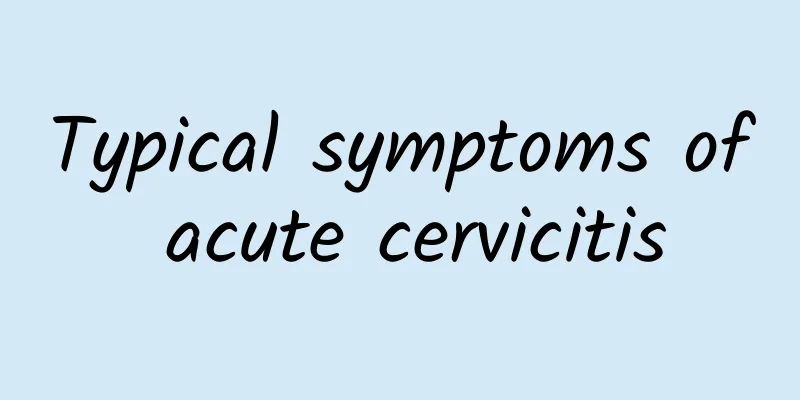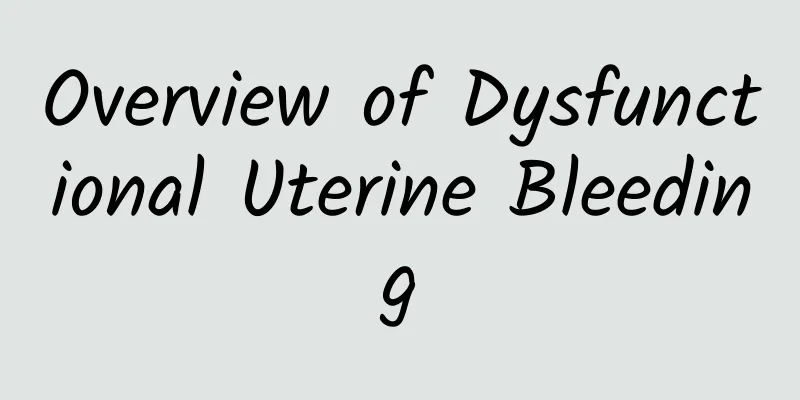What is the drainage tube after uterine fibroid surgery? What is the cause of vomiting after uterine fibroid surgery?

|
What is the drainage tube after uterine fibroid surgery? What is the cause of vomiting after uterine fibroid surgery? Uterine fibroids are a common gynecological disease that not only causes symptoms such as irregular menstruation and pelvic pain, but also affects pregnancy in severe cases. In some severe cases, doctors may recommend surgery to remove the uterine fibroids. However, postoperative care is very important, including the use of drainage tubes and the cause of vomiting. 1. What is the drainage tube after uterine fibroid surgery? After surgery, doctors often place drains to help drain blood and lymph fluid. A drain is a medical device, usually made of soft plastic, that is used to remove blood and other body fluids from a surgical incision. Drains are usually placed by the surgeon or nurse during surgery and left in place for a period of time after surgery to reduce the risk of surgical site complications. The type and size of drain may vary depending on the patient's specific situation and the location of the surgical incision. 1. Types of drainage tubes According to the shape and structure of the drainage tube, it can be divided into chest drainage tube, gastrointestinal drainage tube, etc. Chest drainage tube is usually used in thoracic surgery to remove pleural effusion and air; gastrointestinal drainage tube is often used in abdominal surgery to remove blood and lymph in the abdominal cavity. According to the material of the drainage tube, it can be divided into rubber drainage tube and silicone drainage tube. Silicone drainage tube is a commonly used one, with the advantages of softness, transparency and corrosion resistance. 2. How to use the drainage tube When placing a drainage tube, you need to pay attention to the following points: first, choose the appropriate type and specification of drainage tube and make adequate preparations before the operation; then, perform local anesthesia before placing the drainage tube, ensure that the area around the patient's incision is clean, and take measures to prevent the catheter from shifting; finally, the patient's drainage fluid needs to be closely observed after the operation, and drainage tube blockage or other problems should be dealt with in a timely manner. 2. Causes of vomiting after uterine fibroid surgery Vomiting is a common postoperative reaction after uterine fibroid surgery and there are many reasons for it. Here are a few common reasons that may cause vomiting: 1. General anesthesia Uterine fibroid surgery is usually performed under general anesthesia, which can cause nausea and vomiting. This is because the anesthetic stimulates the vomiting center, causing a vomiting reaction. Generally speaking, this vomiting phenomenon will subside on its own after the effect of the anesthetic gradually subsides. 2. Side effects of anesthetic drugs Anesthetic drugs themselves have side effects, such as vomiting, dizziness, etc. These side effects may cause patients to feel nauseous for a period of time after surgery. 3. Slow recovery of gastrointestinal function after surgery Surgery can cause some interference and stimulation to the patient's gastrointestinal function, resulting in a slower recovery of gastrointestinal function. Postoperative patients may experience symptoms such as gastric reflux and slow gastric emptying, which can lead to nausea and vomiting. Summarize: Postoperative care for uterine fibroids is very important, including the use of drainage tubes and the cause of vomiting. The correct selection and use of drainage tubes can help reduce the occurrence of surgical site complications. Postoperative vomiting is mostly caused by the side effects of general anesthesia and anesthetic drugs and the slow recovery of gastrointestinal function. For postoperative vomiting, patients should communicate with their doctors in a timely manner and seek appropriate treatment methods to promote recovery and relieve discomfort. |
Recommend
Can cervical warts be passed on to children?
Cervical warts are familiar to some people, but t...
Detailed analysis of the causes of pelvic inflammatory disease
In recent years, with the continuous increase in ...
A must-eat for weight loss! Choose the right 5 superfoods to help you repair your body
You want to feel happy and strong, not depressed ...
Experts teach you a few tricks to treat adnexitis.
Generally speaking, chronic adnexitis is more com...
Is it dangerous to take abortion pills? Yes, it is dangerous.
Taking abortion pills is dangerous. It can induce...
Skipping breakfast to lose weight? Instead of reducing it, the risk of diabetes and hypertension increases!
Many people always tell themselves to eat less as...
What causes Bartholinitis?
What are the causes of Bartholinitis? Some female...
Cervical erosion has nothing to do with cancer
Is cervical erosion related to cancer? What are t...
Basic examination items for postmenopausal bleeding
Some patients with postmenopausal bleeding, espec...
What is a benign chocolate cyst? What are the precautions for chocolate cysts?
As environmental pollution becomes more and more ...
Have you noticed the causes of cervical hypertrophy?
There are many reasons for cervical hypertrophy. ...
What are the dangers of improper medical abortion?
Women of childbearing age have been praying for a...
What are the small blood clots that are common during menstruation?
What are the small blood clots that are common du...
[Quick Questions and Answers] Can nutritional supplements really protect your eyesight?
Mother Li, who is nearly 60 years old, feels that...
Which hospital is good for treating irregular menstruation?
Which hospital is good for treating irregular men...









